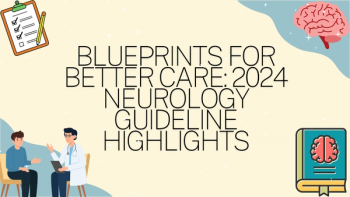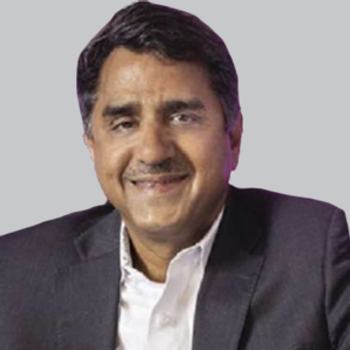
While effective in reducing amyloid plaques, donanemab carries a notable risk of amyloid-related imaging abnormalities (ARIA), underscoring the need for careful patient monitoring and risk management strategies.

Marco Meglio, Assistant Managing Editor for NeurologyLive, has been with the team since October 2019. Follow him on Twitter @marcomeglio1 or email him at [email protected]

While effective in reducing amyloid plaques, donanemab carries a notable risk of amyloid-related imaging abnormalities (ARIA), underscoring the need for careful patient monitoring and risk management strategies.

New research highlights the significant economic burden of misdiagnosed migraine patients, revealing higher healthcare costs and resource utilization over time compared to those with accurate diagnoses.

Mind Moments®, a podcast from NeurologyLive®, brings you an exclusive interview with Bijoy Menon, MD, MSc, FRCPC. [LISTEN TIME: 18 minutes]

Explore the key 2024 neurology guideline updates shaping clinical care across stroke, epilepsy, movement disorders, and more in this essential feature.

Treatment with the Chordate System led to a significantly greater reduction in monthly headache days during the performance assessment period, with a reduction of 3.5 days compared to 1.2 days in the sham group.

Daniel Ontaneda, MD, PhD, an associate professor of neurology at the Cleveland Clinic Lerner College of Medicine, gave thoughts and perspectives on some of the emerging, promising advances in multiple sclerosis care expected to come to fruition in 2025.

PAP therapy significantly improved cognitive function, particularly executive and psychomotor skills, in patients with Parkinson disease with comorbid obstructive sleep apnea.

Using more than 100,000 claims, the 36-month cumulative risk of acute myocardial infarction and stroke was similar between erenumab and other anti-CGRP mAbs, with minimal residual bias.

Treatment strategies varied across cases, incorporating therapies like prednisolone, rituximab, and azathioprine, with overall positive outcomes and symptom improvement.

Test your neurology knowledge with NeurologyLive®'s weekly quiz series, featuring questions on a variety of clinical and historical neurology topics. This week's topic is on Parkinson disease.

Lecanemab, a monoclonal antibody directed against aggregated soluble and insoluble forms of amyloid-ß, remains under review, with a decision expected in the coming months.

BXCL501, an orally dissolving dexmedetomidine film, showed positive results in reducing agitation symptoms in patients with Alzheimer disease during the phase 3 TRANQUILITY trial.

Mind Moments®, a podcast from NeurologyLive®, brings you an exclusive interview with Sonal Bhatia, MD, FACNS. [LISTEN TIME: 24 minutes]

Based on the results of PROGRESS and the previous RELIEF-DPN-1 study, the 10 mg dose of pilavapadin was selected to move forward in clinical development for diabetic peripheral neuropathic pain.

In the CAVS-MS study, 19% of participants with atypical or radiological-only presentations met the 2024 McDonald Criteria for MS, enabling earlier treatment initiation.

GFAP changes positively correlated with gadolinium-enhancing lesion volume (P = 0.18) and negatively with left ventricular volume (P = -0.19).

The vice president and senior global program lead for Hematology and Cell Therapy at BMS gave clinical commentary on encouraging phase 1 findings of CD19-XT in progressive and relapsing multiple sclerosis.

In both HERCULES and GEMINI trials, tolebrutinib reduced the risk of 6-month confirmed disability worsening, especially in participants with at least 4 baseline paramagnetic rim lesions.

With a scheduled PDUFA date of August 31, 2025, deramiocel looks to become the first marketed treatment for cardiomyopathy in DMD, one of the leading causes of death in this patient population.

Originally approved in 2007, eculizumab (Soliris; Alexion/AstraZeneca) is now available to treat both adult and pediatric patients with generalized myasthenia gravis, becoming the first available option for younger patients with the disease.

Overall, treatment with the anti-tau monoclonal antibody resulted in no serious or severe adverse events, with additional results expected to be presented at an upcoming scientific conference.

Glatiramer acetate depot treatment showed stability in EDSS scores over 3 years, suggesting halted progression in patients with primary progressive MS.

After 24 months after switching to cladribine, 100% of patients with relapsing MS remained free from T1 gadolinium-enhancing lesions, with no reported cases of PML or rebound disease activity.

The 80 mg QD dosage, which showed the greatest efficacy in lesion reduction (92.3% at 24 weeks), will be used in phase 3 progressive MS studies.

Test your neurology knowledge with NeurologyLive®'s weekly quiz series, featuring questions on a variety of clinical and historical neurology topics. This week's topic is on dementia.

A new phase 1 study will investigate the safety and biological effects of light therapy as a potential approach to alleviating fatigue in patients with progressive multiple sclerosis.

Amber Freed, founder of SLC6A1 Connect, shared her personal journey and advocacy efforts to raise awareness for SLC6A1, a rare genetic epilepsy, in honor of Rare Disease Day.

Mary Schroth, MD, FAAP, FCCP, chief medical officer at Cure SMA, shed insight on the advances and promise for treating spinal muscular atrophy, in the context of Rare Disease Day.

After 4 years of treatment, those on cladribine demonstrated a correlation between sustained health-related quality of life, specifically physical and mental health, and cognition.

Overall, 81.6% of patients preferred ocrelizumab over other MS treatments, with 98.1% satisfied with it overall by week 48.